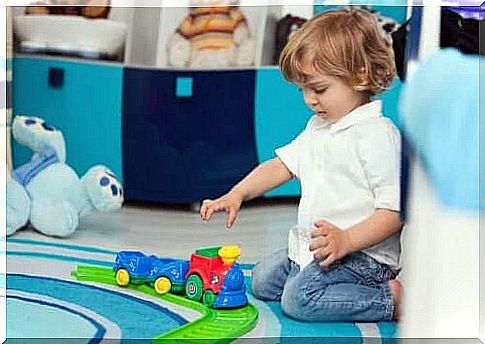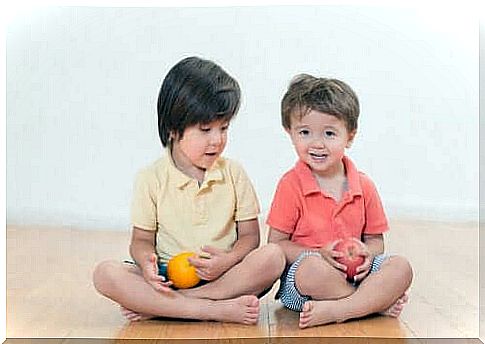The Terrible Two Years

The two years are a period of great physiological and psychological changes for children, almost like a little puberty. They begin to demand autonomy and express their personality in ways that can sometimes make adults desperate.
This phase can start around 18 months and extend up to four years. It is a normal phase that children must go through, although, depending on the child and family circumstances, it can be lived in a more or less intense way.
What are those terrible two years?
Any parent with children past that age can attest to the radical change that is felt in children’s behavior at age two. Some of the most frequent behaviors are:
- The child becomes capricious and wants to impose his will at all costs.
- She becomes self-centered and possessive, not wanting to share.
- The “no” is built into her vocabulary, and she becomes stubborn and headstrong. Does not accept orders or help from any adult.
- She gets angry easily, for minor things. Cries, screams and tantrums frequently.
- In an eagerness to enforce their decisions, some children may begin to refuse food or activities that they previously accepted without problems.
- Despite the parents’ attempts, when a tantrum occurs, the child does not listen or reason.

understanding the little ones
At this point of confusion and exhaustion, many parents wonder who left their little angel for a hysterical, out-of-control little human being. What could have happened?
At this age, the child’s cognitive and motor development has already evolved considerably. The little one is already able to move and walk alone, just as he is able to reason and choose. The child begins to know what he wants and wants to have his wishes granted.
Until then, his self was so merged with that of his main attachment figure that the child could barely tell the difference. However, now she begins to perceive herself as an individual separate from her mother, with an identity, personality and abilities of her own.
Then, the need for self-determination to appreciate and use this differentiation with the mother is triggered. The child starts to explore their own tastes, ideas and personality. She wants to choose and do things alone, without the help or intervention of adults, and gets very angry when that independence is not respected.
The child now sees your desires but not your limitations. She knows what she wants, although she doesn’t quite know how to get it. She begins to become more aware of herself and to experience more complex emotions, such as pride or shame.
However, she still does not have the ability to manage or express her emotions clearly and, faced with a denial from her parents, she can only react with a tantrum. At this point, she is not fully able to understand why she cannot have what she wants so much and why there are limitations.

This is a difficult time for both parents and children who, on many occasions, may not even know what is happening to them or why they are feeling so angry.
Tips to get over the terrible two years
Despite being a normal and passing phase, it can be really desperate for parents. Frustration and helplessness can become a part of everyday life, and at times they will feel so lacking in resources that they will want to throw in the towel.
It is essential to remember that even if we do everything right, we will not see immediate results in our children. The tantrums will happen and, even so, the path of patience, love and respect will always be the right path.
- Do not react violently, yell or hit your child. Keep calm and talk to him with love. Follow the tantrum patiently and once it’s over, calmly explain your reasons.
- Indulge in moderation. As far as possible, avoid giving a resounding “no” in response. It is preferable to offer several options for the child to choose from. If the child’s wish is acceptable, give in. If it’s not acceptable, stand firm and join her in her frustration.
- Try to stick to some routines and notify the child in advance of what is going to happen. This will provide security.
- Do not judge her or criticize her harshly for tantrums. She doesn’t do it for bad, but because she’s still learning to live and, at this age, some cruel comments can seriously damage her self-esteem.









